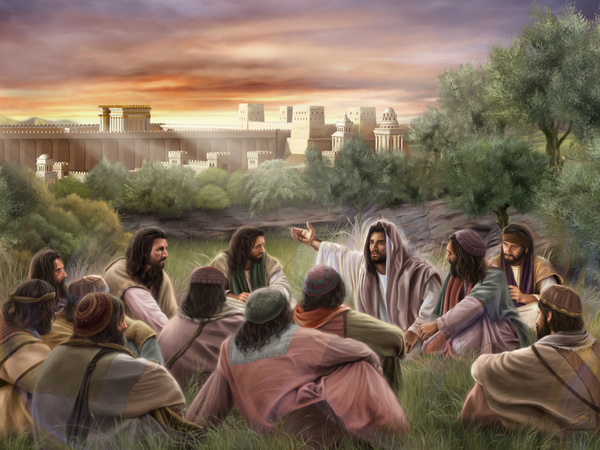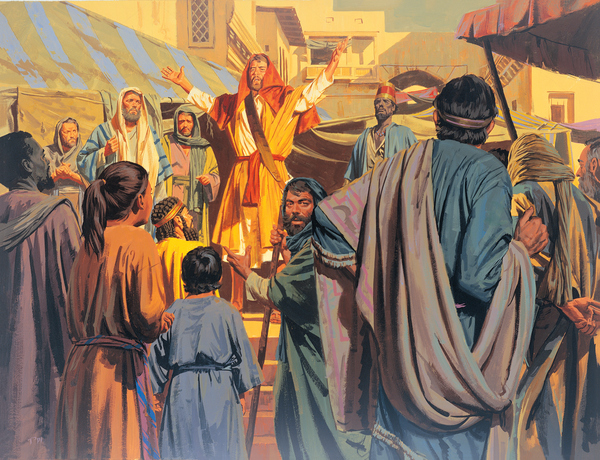Holy Wholeness: Holy Power

Holy Wholeness: Holy Power
Scripture: Acts 1:8
Lt. Colonel Allen Satterlee
Spiritual Life Officer
USA Southern Territory
 The Day of Pentecost was preceded by a promise of power. Jesus said, “But you will receive power when the Holy Spirit comes on you; and you will be my witnesses in Jerusalem, and in all Judea and Samaria, and to the ends of the earth" (Acts 1:8). This power is set against the world’s understanding of power. It is not anything associated with governments or kingdoms. It is not military power -- swords will rust, weapons will be outmoded, guns will fall silent. It is not some superior form of intelligence – every authority finds itself pushed to the past by new discoveries. It is not personal magnetism – that dies with the individual.
The Day of Pentecost was preceded by a promise of power. Jesus said, “But you will receive power when the Holy Spirit comes on you; and you will be my witnesses in Jerusalem, and in all Judea and Samaria, and to the ends of the earth" (Acts 1:8). This power is set against the world’s understanding of power. It is not anything associated with governments or kingdoms. It is not military power -- swords will rust, weapons will be outmoded, guns will fall silent. It is not some superior form of intelligence – every authority finds itself pushed to the past by new discoveries. It is not personal magnetism – that dies with the individual.
The sad thing is that in the history of Christianity the Church has from time to time attempted to use all these things instead of what Jesus was talking about. These may succeed in the short run, but in trying to exercise this type of power, the church loses its identity and its purity. The same is true for individual Christians.
The Holy Spirit’s Power
We need to note when Jesus said the power would come: “When the Holy Spirit comes on you.” Jesus clearly states that the source of our power is God alone. In His Last Supper address, Jesus told them that the Holy Spirit would come and that He would supply what they needed. (See John 16:7-14)
clearly states that the source of our power is God alone. In His Last Supper address, Jesus told them that the Holy Spirit would come and that He would supply what they needed. (See John 16:7-14)
The Holy Spirit’s coming was for a purpose as well. As Jesus said, “You will be My witnesses.” The reason the Holy Spirit comes is not to make us happy or to give us power to perform miracles, although these things may result. The primary reason He comes is to enable us to bear witness for Jesus. The strategy for the witnessing is outlined:
- Jerusalem – those closest to home
- Judea – those in our neighborhood
- Samaria – surrounding areas
- Uttermost parts of the earth.
Primacy of Prayer
 This purpose of Pentecost came because of the prayer of Pentecost. The Bible records a great many important prayers but strangely, on one of the most significant days in history, the prayer of those gathered is not mentioned. We know that they were praying because Acts 1:14 tells us, “They all joined together constantly in prayer…”
This purpose of Pentecost came because of the prayer of Pentecost. The Bible records a great many important prayers but strangely, on one of the most significant days in history, the prayer of those gathered is not mentioned. We know that they were praying because Acts 1:14 tells us, “They all joined together constantly in prayer…”
Even though we are not told exactly what they prayed for, we know from other biblical examples that prayers tended to follow a similar pattern. For example, the prayer found in Ezra 9 includes admission of sin (vs. 6 & &), recognition of God’s grace (vs. 8 & 9) and repentance (vs. 10-15). Whether the disciples’ prayer followed this pattern or not, it must be remembered that no important movement of God ever happened without a recognition of sin, followed by repentance and then complete surrender to the mercy and grace of God.
The Presence at Pentecost
The prayer of Pentecost was followed by the Presence of Pentecost. We read in Acts 2, “Suddenly a sound like the blowing of a violent wind came from heaven and filled the whole house where they were sitting. They saw what seemed to be tongues of fire that separated and came to rest on each of them. All of them were filled with the Holy Spirit and began to speak in other tongues as the Spirit enabled them” (vs. 2-4). The Greek word pneuma, found in the original language, is used here for the Holy Spirit. It literally means breath or wind. The wind from heaven was the physical sign of the spiritual presence of God the Holy Spirit.
 Not only do we have this sign of the wind but of fire as well. The symbol of fire is seen throughout the Scripture to indicate the presence of God, purification and power. Through fire God spoke to Moses at the burning bush. Fire led the children of Israel through the wilderness. Fire purified the sacrifices and in so doing, released the sweet aroma heavenward. Fire came down from heaven at Mount Carmel when Elijah challenged the priests of Baal, consuming the sacrifice and proving the power of God.
Not only do we have this sign of the wind but of fire as well. The symbol of fire is seen throughout the Scripture to indicate the presence of God, purification and power. Through fire God spoke to Moses at the burning bush. Fire led the children of Israel through the wilderness. Fire purified the sacrifices and in so doing, released the sweet aroma heavenward. Fire came down from heaven at Mount Carmel when Elijah challenged the priests of Baal, consuming the sacrifice and proving the power of God.
The phenomenon of speaking in tongues cannot be ignored. What exactly this miracle meant is a cause for division among God’s people even today. In analysing what occurred on the Day of Pentecost, the Scripture tells us several aspects about the unknown tongues that need to be kept in mind.
- It is clear that they spoke in languages clearly understood by other people.
- Speaking in tongues was not divorced from the mental processes of the disciples. That is, it was not something that overwhelmed them in ignorance. Rather it involved their full thinking abilities as well.
- It was done to communicate on God’s behalf.
- It was also done to fulfil Jesus’ command to “be My witnesses.”
- It was not done for personal enjoyment but for the service of God.
Proof
When the promise of Christ was fulfilled, it changed the world forever. On this day God showed that Christianity was not just another small Jewish sect in Palestine but that it was meant to benefit the whole world. Every Christian who draws breath today owes that fact to Pentecost.
This affected not only the church but individuals as well. Before Pentecost, Peter was up and down, bold then afraid, ready to die for Christ and then quick to deny Him. But after Pentecost he never denied Christ again, finally dying for his Lord in a Roman coliseum. He was not a perfect man, but something had changed him from being a lukewarm professor of Christ to a dynamic force for Christ. Peter’s change signalled that the victorious life is the norm for Christians and that this change is for all people in all times.
What about you? Have you experienced your personal Pentecost? The God who breathed then longs to fill your life now. Why not today?
Corporate Prayer
Dear Lord, We come see the power that the disciples had to be Your witnesses and we know it was not because they all the sudden decided that they were going to do it. You purified and empowered them through Your Holy Spirit so that they could do what was unthinkable to them before. I ask You now, do You have all of me like they did on that day? Has Your Holy Spirit so cleansed me and filled me that I can stand as Your witness and speak in Your power? O, Lord! Do what You must do I can be what You need for Your glory! Help me to settle for nothing less than Your best in me. In Jesus' name, Amen.
Our Worldwide Prayer Meeting
New Zealand, Fiji, Tonga & Samoa Territory
Thinking It Through
The author said, "Every Christian who draws breath today owes that fact to Pentecost." What future generations will owe their salvation to your witness today?
Notable Quotables
I must not sit back and pray that others will do something or complacently watch someone else sharing his faith. I must demonstrate my faith, and I must do even more to persuade for Christ. - Mrs. General Jean Brown
All this reminds us of that new classic rendering of William Booth's original song, "Send the Fire."
We would appreciate any feedback and/or suggestions on how to improve these devotionals. Please email comments to: SpiritualLifeDevelopment@uss.salvationarmy.org or by going to our website: https://southernusa.salvationarmy.org/uss/spiritual-life-development.
We would love to hear from you.
Lt. Colonel Allen Satterlee
Territorial Spiritual Life Development Officer/THQ Chaplain
USA Southern Territory
